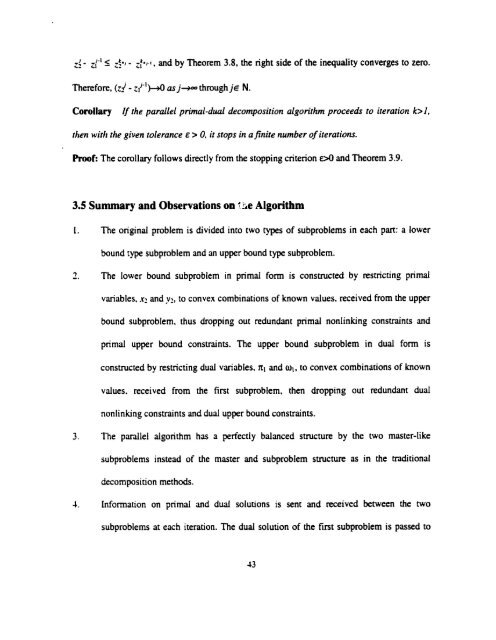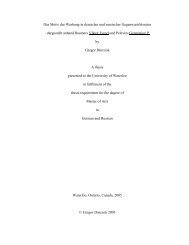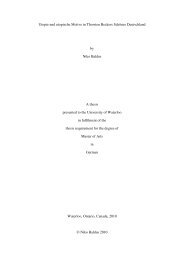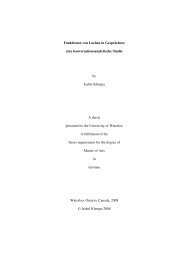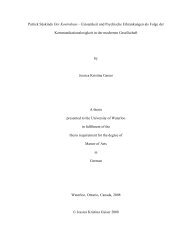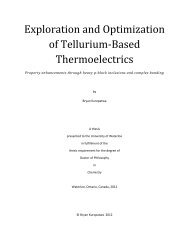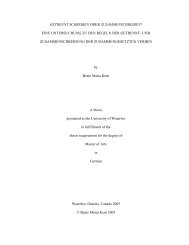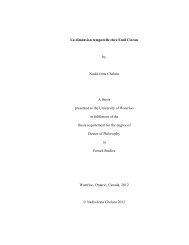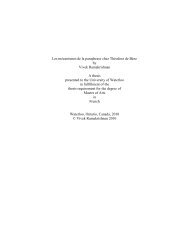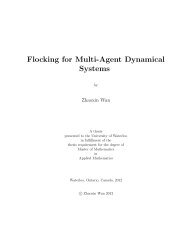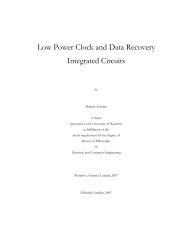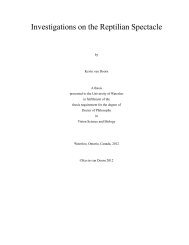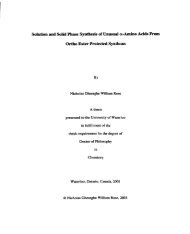X - UWSpace - University of Waterloo
X - UWSpace - University of Waterloo
X - UWSpace - University of Waterloo
Create successful ePaper yourself
Turn your PDF publications into a flip-book with our unique Google optimized e-Paper software.
zi - $' 5 z+ - &J-[, and by Theorem 3.8, the right side <strong>of</strong> the inequality converges to zero.<br />
Therefore, (z/ - :)'')+O as j- through je N.<br />
Cordlary if the parallel primnl-dual decomposition algorithm proceeds to iterution k> 1,<br />
rhen with the given tolerance E > O. it stops in a finite number <strong>of</strong> iterations.<br />
RooE The corollary follows directly from the stopping criterion uO and Theorem 3.9.<br />
3.5 Summary and Observations on !Le Algorithm<br />
L. The onginai problem is divided into two types <strong>of</strong> subproblems in each part: a lower<br />
bound type subproblem and an upper bound type subproblem.<br />
2. The lower bound subproblem in primai form is consuucted by resaicting prima1<br />
variables. xz and y, to convex combinations <strong>of</strong> known values. received from the upper<br />
bound subproblern. thus dropping out redundani prima1 nonlinking conscraints and<br />
primai upper bound constraints. nie upper bound subproblem in dud form is<br />
consuucted by restncting dual variables. iri and al, to convex combinations <strong>of</strong> known<br />
values. received from the first subproblem. then dropping out redundant dud<br />
nonlinking constraints and dual upper bound constraints.<br />
3. The panIlel aigorithm ha a perfectly bdanced structure by the two master-like<br />
subproblems instead <strong>of</strong> the master and subproblem structure as in the aaditional<br />
decomposition methods.<br />
4 information on primai and duai solutions is sent and received between the two<br />
subproblems at each iteration. The duai solution <strong>of</strong> the fint subproblem is passed to


